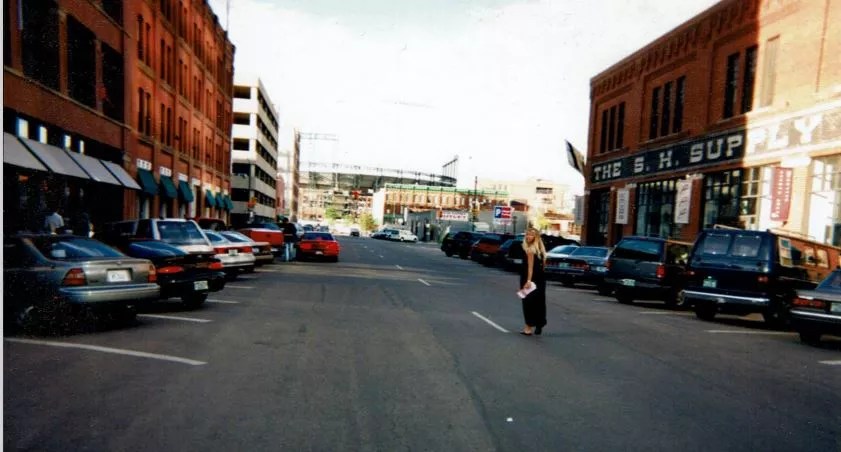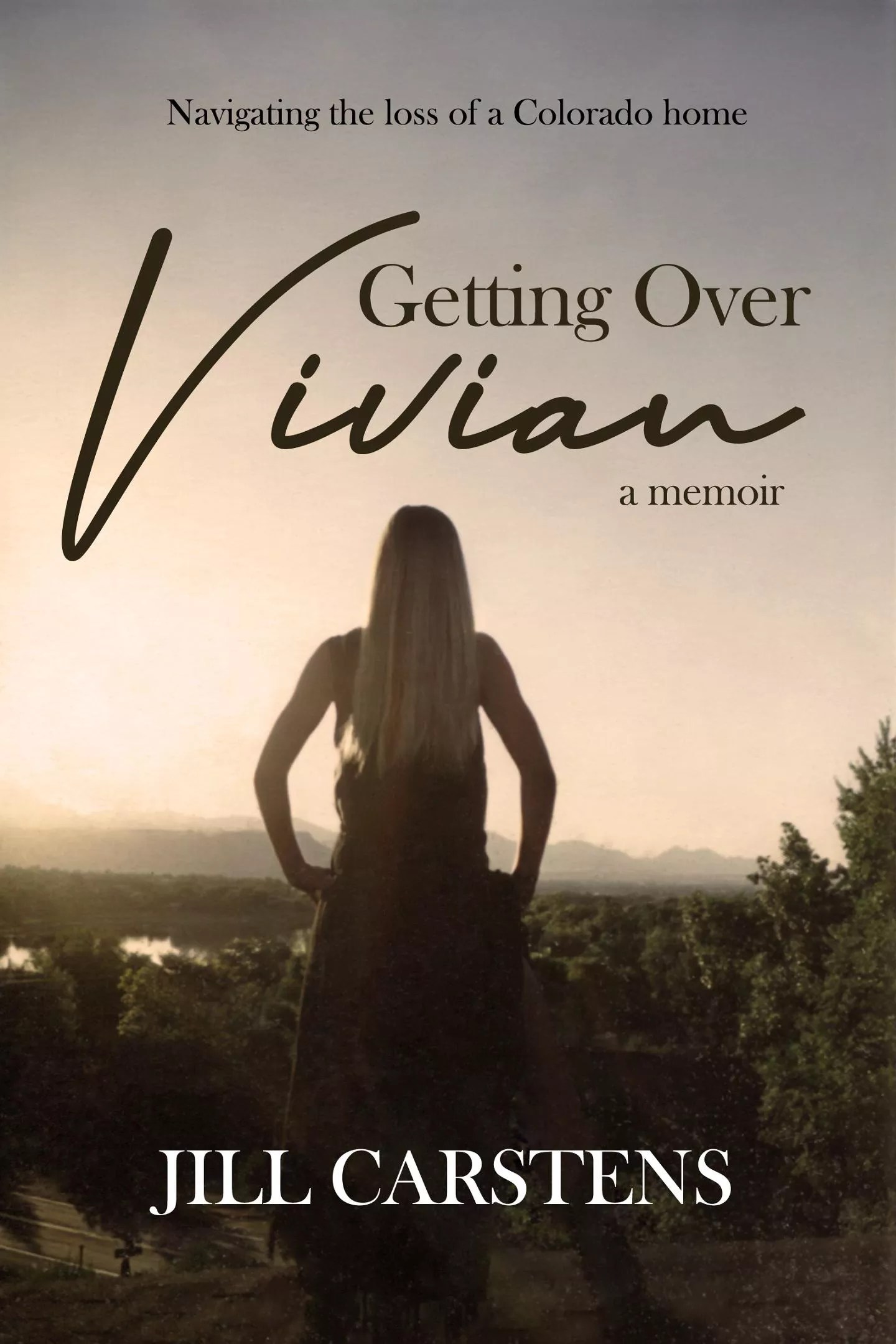
Jill Carsten

Audio By Carbonatix
Jill Carstens grew up in the suburbs of Denver back when the suburbs weren’t all that far-flung. She and her family lived on Vivian Street near 26th Avenue, a thoroughfare she recalls her father saying would “take you anywhere you want to go.”
Carstens recalls that life – and the losses of the city, time and again – in her book Getting Over Vivian, which she’ll read from during the Bookies grand reopening celebration on Saturday, April 27. The event is at the Bookies’ new location (2085 South Holly Street) and will take place from 10 a.m. to 5 p.m., with Carstens reading at 2 p.m.
As for anywhere she wants to go, that’s changed for Carstens. As a kid, she had a list: the classic Mexican food at La Loma, back when it was on 26th Street, or the Italian restaurant Josephina’s, a space at Larimer Square now occupied by Rioja. And that’s just the cuisine – and only part of old Denver culture – that Carstens recalls in her elegy of a memoir. It’s not subtitled “Navigating the loss of a Colorado home” for nothing.

Jill Carstens
Carstens says her favorite part of the book recalls a time when she visited her brother in a “ramshackle Victorian” near Colfax and Emerson back in the ’80s, the Capitol Hill era that people reminisce about when they say the neighborhood just isn’t the same anymore. Carsten’s brother and his friends eventually formed the local band Zoon Politikon, and eventually moved into a place on Downing Street that was once part of the Rocky Mountain School of Art. They moved there because it had an auditorium that they could – and did – turn into a venue, which they called the Classroom. In a 1995 interview, Zoon Politikon’s Pat Donovan credited the band’s success to its hometown of Denver, saying, “Isolation has allowed it to become something different.”
And that “something different,” according to Carstens, was a place of opportunity. In her memoir, she describes what she, her brother and everyone they knew were doing back then as breathing life into the city. “Without realizing it,” she writes, “they [her brother and friends] were revitalizing it [Cap Hill]. Not gentrifying it. They were creating a community within the ingredients that were already a part of our city. An enclave of raw visionaries.”
That revitalization is what Carstens and many longtime Denverites who came up in that same era miss so much about their city. Much has been lost, and Carstens rattles off all sorts of places that were big in the local culture but are now just memory: Common Grounds on Highlands Square, the White Spots that used to dot the city, City Spirit and on and on, more all the time.
But Carstens isn’t just lamenting what’s been lost; she’s actively working to ensure more of Denver’s past doesn’t go the way of the Mizpah Arch. “We got seriously bruised by Tennyson,” Carsten says, referring to the overbuilding of the Tennyson corridor in recent years and the ensuing loss of much of its original charm. Her focus right now is working to salvage the legendary jazz spot El Chapultepec, which closed during the pandemic. She’s a part of the “Save the ‘Pec” movement, which has challenged Monfort Companies’ plans to demolish the structure. Monfort, which owns much of that stretch of Market Street, claims the building is unsalvageable, but Historic Denver has notably worked with buildings in much worse shape and preserved them for the sake of their local legacies. “Obviously, the music history is huge,” Carstens says. “But like a lot of people in town, I have fond memories of the ‘Pec. It was so tiny and so gritty, and full of these old men dressed up in their suits and ties, welcoming you like old friends even though they’d never met you. Everyone was welcome.
“Unless you looked like a punk,” Carstens laughs, and recalls the apocryphal story about U2’s Bono showing up at El Chapultepec in the late ’80s, with spiky hair, earrings, tattoos and leather and a young girl on his arm. The girl was nineteen – too young to get in, especially since Bono apparently looked like trouble. Bono asked if they knew who he was, that he was from U2. The legendary reply was something along the lines of: “Well, you two better get out of here.”
Is it true? Probably. In parts. Maybe. But also, it doesn’t really matter. It’s all part of the history of the ‘Pec – and the Denver Landmark Commission has a public hearing about its future at 1 p.m. on Tuesday, May 7.
Carstens is not stopping there, either. There are a lot of other places in Denver that deserve to remain, and not only in the hearts of those who love them. “We need to look ahead, past our late 1800s and early 1900s preservations and acknowledge that our Prohibition-era-through-mid-century buildings are now getting closer to 100 years old and will need to be more readily included as historically significant,” Carstens explains, listing several places that deserve designation and protection: Pete’s Kitchen and the neighboring Satire Lounge, the Lion’s Lair, all the “cheesy hotels” along Colfax.
“Colfax is an artery of Denver that is storied in its extremes of grit and lost luxe,” says Carstens. “Tracing right through the middle of town and, sort of like the ‘Pec, it seems like an ‘everyman’s avenue.’ The homogenization of Denver as chain businesses begin to take over makes the city look and feel like a big suburb rather than the once authentically Western city it has been.”
And could still be, if Denver’s population cares enough.
Jill Carstens will read from Getting Over Vivian at 2 p.m. on Saturday, April 27, as part of the Bookies’ grand reopening celebration, 2085 South Holly Street. For more information, see the Bookies website.